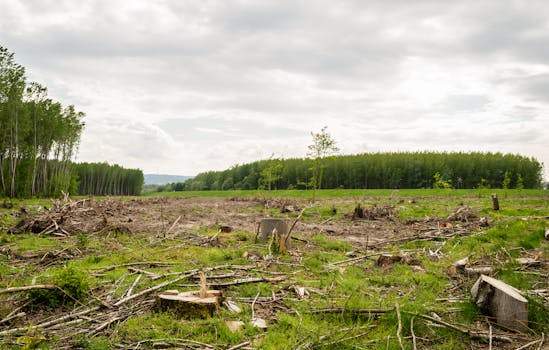
Introduction

The impact of climate change on global ecosystems is profound and far-reaching. As temperatures rise and weather patterns shift, ecosystems around the world face unprecedented challenges. This article delves into the effects of climate change on various ecosystems, highlighting the importance of understanding these changes in the context of biodiversity and conservation efforts.
Effects on Biodiversity

Climate change significantly affects biodiversity, leading to shifts in species distribution and the extinction of vulnerable species. Many organisms are unable to adapt quickly enough to the changing climate, resulting in decreased biodiversity. For instance, species that rely on specific temperature ranges or seasonal cues for reproduction may face challenges as those cues become inconsistent.
Habitat Loss
One of the most immediate effects of climate change is habitat loss. Rising sea levels threaten coastal ecosystems, while increased temperatures can alter or destroy habitats such as coral reefs and forests. This loss not only affects the species that inhabit these areas but also disrupts the ecological balance, leading to further consequences down the line.
Impact on Ecosystem Services

Ecosystems provide critical services that support human life, including clean air and water, pollination of crops, and climate regulation. Climate change jeopardizes these services, impacting food security and human health. For example, changes in temperature and precipitation patterns can affect agricultural productivity, leading to food shortages and increased prices.
Ocean Acidification
Ocean acidification is another significant consequence of climate change, resulting from increased carbon dioxide levels in the atmosphere. As CO2 is absorbed by the oceans, it lowers the pH of seawater, negatively impacting marine life, particularly species with calcium carbonate structures, such as coral reefs and shellfish. This disruption has cascading effects on marine ecosystems and the communities that depend on them.
Adaptation and Mitigation Strategies

Addressing the impact of climate change on ecosystems requires a multifaceted approach that includes both adaptation and mitigation strategies. Conservation efforts aimed at preserving biodiversity and protecting habitats are essential. Implementing sustainable practices in agriculture, forestry, and fishing can help reduce the pressure on ecosystems and enhance their resilience to climate change.
Community Involvement
Engaging local communities in conservation efforts is vital for successful adaptation to climate change. Communities that rely on natural resources must be involved in decision-making processes to ensure that their knowledge and needs are considered. Education and awareness-raising initiatives can empower communities to take action and contribute to the preservation of their ecosystems.
Conclusion

The impact of climate change on global ecosystems is a pressing issue that demands immediate attention. As biodiversity declines and ecosystems face unprecedented challenges, it is crucial to implement effective conservation strategies and engage communities in protecting their natural environments. Only through collective efforts can we hope to mitigate the effects of climate change and preserve the planet’s rich biodiversity for future generations.



